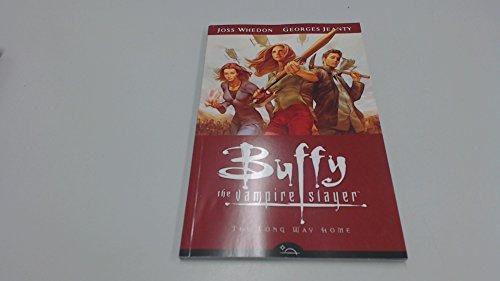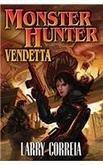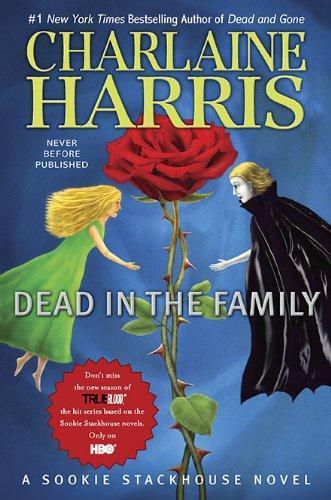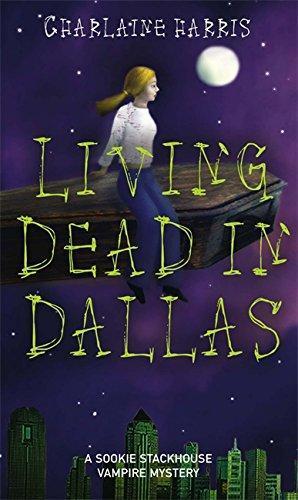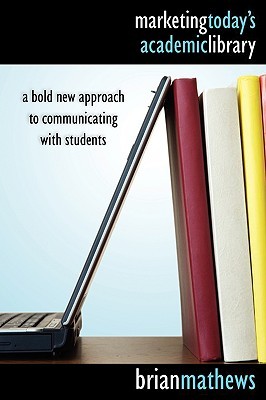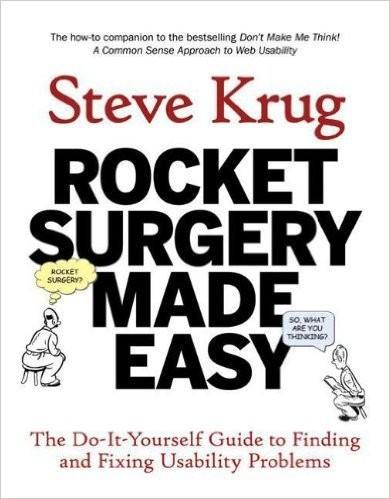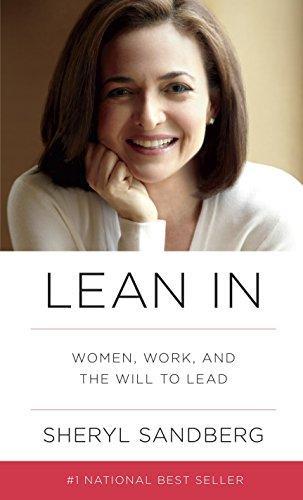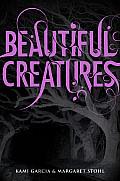This is more of the first book, only with zombies. I hate zombies. I need a break from the series, after all of the zombie shenanigans.
Reviews and Comments
Your bird friend Coral, a library web developer and systems administrator, working remotely. Runs (despite their best efforts) on caffeine and rage.
This link opens in a pop-up window
coral rated Buffy the Vampire Slayer 1: 4 stars
coral reviewed Vendetta by Larry Correia
coral rated Dead reckoning: 3 stars
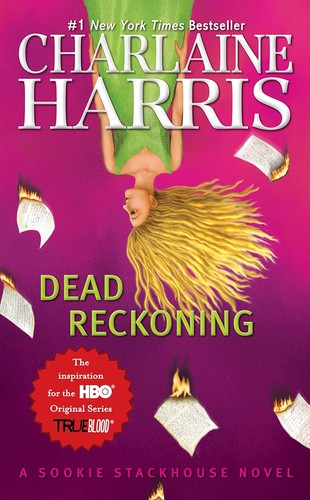
Dead reckoning by Charlaine Harris
"With her knack for being in trouble's way, Sookie Stackhouse witnesses the firebombing of Merlotte's, the bar where she works. …
coral rated Dead in the Family: 3 stars
coral rated Living Dead in Dallas: 3 stars
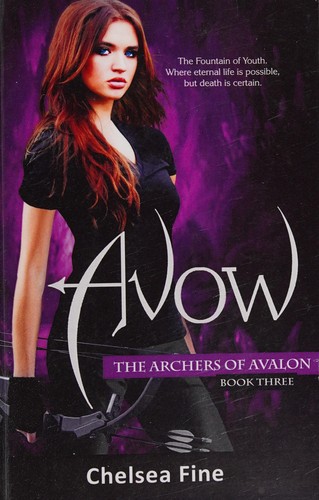
Avow by Chelsea Fine
coral reviewed Anew: The Archers of Avalon, Book One by Chelsea Fine
None
4 stars
This is very fluffy YA reading. Better gender dynamics than Twilight, similarly creepy family/relationships dynamics to Vampire Diaries (actually a little creepier), and [technically] no vampires.
The storytelling is pretty good; the copy editing is awful. ("Vile" instead of "vial" and similar weird errors.)
This is very fluffy YA reading. Better gender dynamics than Twilight, similarly creepy family/relationships dynamics to Vampire Diaries (actually a little creepier), and [technically] no vampires.
The storytelling is pretty good; the copy editing is awful. ("Vile" instead of "vial" and similar weird errors.)
coral reviewed Marketing today's academic library by Brian Mathews
None
4 stars
Although this book isn't what I set out looking for (help making a marketing plan and style guide), it offers some good insights and points at some really useful resources. My library's assessment team just spent a semester reading [b:Creating the Customer-Driven Academic Library|6006393|Creating the Customer-Driven Academic Library|Jeannette A. Woodward|https://d202m5krfqbpi5.cloudfront.net/books/1349068215s/6006393.jpg|6181482], and now I really wish we would have held off and read this, instead. This has a lot more assessment-related content and, honestly, a lot more about being customer-centric. It's also a little more balanced between library-as-place and online services.
There's a lot in here about making partnerships with students. And faculty, as well, but the student focus is what really makes the book, for me. I love the idea of creating a student advisory group for the library (which I'd never considered), as well as the general theme of coming up with ways to fit into students' lives, instead …
Although this book isn't what I set out looking for (help making a marketing plan and style guide), it offers some good insights and points at some really useful resources. My library's assessment team just spent a semester reading [b:Creating the Customer-Driven Academic Library|6006393|Creating the Customer-Driven Academic Library|Jeannette A. Woodward|https://d202m5krfqbpi5.cloudfront.net/books/1349068215s/6006393.jpg|6181482], and now I really wish we would have held off and read this, instead. This has a lot more assessment-related content and, honestly, a lot more about being customer-centric. It's also a little more balanced between library-as-place and online services.
There's a lot in here about making partnerships with students. And faculty, as well, but the student focus is what really makes the book, for me. I love the idea of creating a student advisory group for the library (which I'd never considered), as well as the general theme of coming up with ways to fit into students' lives, instead of trying to get them to use the library on our terms (which I consider often, but still think is a minority viewpoint among librarians).
I guess I should add: I enjoy Brian Mathews' blog, so perhaps it's unsurprising that I would enjoy his book.
(One minor nitpick: The references to MySpace and discussion of "getting started with blogging" or making podcasts are a little distracting and kind of date it, a little, but those are such minor points, in the scheme of the book, that I would still recommend reading it—with the caveat that you should ignore anything mentioning a specific technology. I imagine the second edition will be more technology-agnostic.)
coral reviewed Rocket Surgery Made Easy
None
4 stars
I really, really like Krug. He's a smart guy and writes really approachable, encouraging prose. I got my whole Web Team to read [b:Dont Make Me Think|1210562|Dont Make Me Think And Html World Wide Web|Steve Krug|http://d.gr-assets.com/books/1356601110s/1210562.jpg|561281], and it hasn't just improved the Web Team's discussions of the website but, it seems to me, the whole organization's approach to customer service.
After reading the sequel, Rocket Surgery Made Easy, I feel much more confident about my ability to do usability testing. I probably won't do the once-a-month/everyone-watches testing he suggests; I'm a dev team of one. But I'll do it more often, and I'll get my Web Team involved. And it will make things better.
I really, really like Krug. He's a smart guy and writes really approachable, encouraging prose. I got my whole Web Team to read [b:Dont Make Me Think|1210562|Dont Make Me Think And Html World Wide Web|Steve Krug|http://d.gr-assets.com/books/1356601110s/1210562.jpg|561281], and it hasn't just improved the Web Team's discussions of the website but, it seems to me, the whole organization's approach to customer service.
After reading the sequel, Rocket Surgery Made Easy, I feel much more confident about my ability to do usability testing. I probably won't do the once-a-month/everyone-watches testing he suggests; I'm a dev team of one. But I'll do it more often, and I'll get my Web Team involved. And it will make things better.
None
2 stars
Much later edit: I'm not going to delete my old review, but I've grown as a feminist and as a person since I wrote this. And, with that added perspective, I feel pretty confident saying "this book is actually kind of trash." I'll update the star rating accordingly. The short version (other people have done the long version better than I ever could) is that this book is all about how women need to adjust themselves for the corporate world--a world that Sandberg and people like her now have the power to change, but choose not to--and it never takes a critical look at how flawed that world is. The book puts all of the onus for change on the individual, and that is not a reasonable thing for a person with the kind of power Sandberg wields to have put out into the world. ... Anyway, what follows …
Much later edit: I'm not going to delete my old review, but I've grown as a feminist and as a person since I wrote this. And, with that added perspective, I feel pretty confident saying "this book is actually kind of trash." I'll update the star rating accordingly. The short version (other people have done the long version better than I ever could) is that this book is all about how women need to adjust themselves for the corporate world--a world that Sandberg and people like her now have the power to change, but choose not to--and it never takes a critical look at how flawed that world is. The book puts all of the onus for change on the individual, and that is not a reasonable thing for a person with the kind of power Sandberg wields to have put out into the world. ... Anyway, what follows is my initial, flawed, review.
Confession: I'm a little stressed about writing this review, because I think I lack some of the grounding in feminist theory to react "correctly" to this book, and because reaction to the book has been so very emotional. As has reaction to the reviews of the book, for that matter. (Even my own. I cringed at some of what I saw in various places, including GoodReads.) But I have thoughts, and I'll do what I can to share them coherently.
Like most readers, I bring my own experience and biases, and although I have stories about gender relations in the workplace, both good and bad, I also have to acknowledge that I bring a fair bit of privilege into the discussion. So does Sandberg, which seems to be where a lot of the criticism comes from. And I'm torn on that. I mean, we should do whatever we can to fight for every kind of diversity, always; a hypothetical workplace that was gender-inclusive, but in all other ways homogeneous, would still be deeply flawed. So I'll agree with critics that there's a lot of room for Sandberg to do a better job with other forms of inclusivity, and I think that limits the book's audience. I agree that Lean In won't do a lot of good for a single mother with a part-time job, but I also feel like Sandberg acknowledges that, at least implicitly. Also, no, she does not really address any other kind of -ism than sexism in any depth, but she acknowledges that, too. I think some of the criticism on these grounds is a little unfair, in that she's writing a book from her own experience, about a fairly specific topic. For her to try to address class or race issues (for instance) in enough depth to do them justice would not fit in cleanly with the topic of "leadership for women," and I feel like she would risk coming off as patronizing. On balance, I think she does a fair job of acknowledging her privilege, at least in the beginning of the book, and to totally pan the book for not covering every possible angle of diversity is a bit unfair. It's worth commenting on, but not worth throwing the book out altogether.
More broadly, I think there's room for books (and discussions) that are about gender, or race, or class, or sexual orientation, or mental health, or disability, that do not address all of the other topics in that list. I understand that there are issues of intersectionality, and I in no way mean to suggest that they are unimportant issues. But I wonder if we do a disservice to all of the various fronts on which we fight for diversity when we do not allow any discussion to cover just one aspect. This might be my lack of grounding in feminist theory showing. Perhaps the only appropriate way to discuss diversity is to discuss all kinds of diversity at once, and there truly is no space for us to cover each of these issues one at a time. But intersectionality and the combination of feminism with other movements feels to me like "advanced feminism," the sort of thing you only get to discuss once you've moved past lies about gender differences (for instance, women don't go into CS for biological reasons, and men and women are really really different) and arguments about whether or not women should be paid equally (47 US Senators say no). And I could bring out worse examples. I could be wrong, but I think there's tremendous need for a sort of "feminism 101," out there, that gets people started on the path to understanding these deeper issues. And I think this book does it. (Combine it with this video, and there might even be some converts.)
In its role as "feminism 101" and also "leadership 101 for women," Lean In hits the high points, talking about our culture's gender biases, how they are propagated by women at least as much as by men; it covers impostor syndrome and women's reticence (on average) to put their hat in the ring (or "to sit at the table," is how Sandberg phrases it). It gives some good pointers for surviving our current cultural climate, re: gender, while asking us to all work toward changing that climate, as well.
Lots of it rang really true for me. For instance, "By the time they are in college, women are already thinking about the trade-offs they will make between professional and personal goals"—I have decided to be child-free, now, but I didn't know that in college and basically wrote off academia before I'd finished undergrad; female engineering faculty have to choose between children and tenure, or they did in the early '00s, and I wasn't willing to write off children as a possibility. True fact. Also, as a wife who makes more than her husband, I've seen people get weird about that, even though neither of us minds. And the quote "But the dearth of female leaders causes one woman to be viewed as representative of her entire gender": if you swapped out "leaders" for "engineers" or "programmers," you get to the root of most of my neuroses.
And, oh man, where she talks about queen bees? The same thing applies to geek girls—it applied to me, at one point in my life, I'm ashamed to say: "Queen bees internalized the low status of women and in order to feel worthy themselves wanted only to associate with men." (I've grown up a lot since then.) Thankfully, I've never worked under a queen bee, but I'm part of geek culture. I've heard a room full of guys tell a woman, "You're really a man [with female anatomy]." They phrase it as a compliment, and she takes it that way and later goes on to repeat it, herself. I wish this were just a one-time/one-person thing, but I've seen it more than once. In the far-distant past, I've participated in similar conversations, making similar declarations about myself—and that is another post I want to write, having to do with role models and gender identity. Like Sandberg, I hope that, over time, this will become less prevalent.
I think everyone but the most advanced feminist stands to get something out of this book. No, it won't all apply to every reader. Not everyone can be cajoled into wanting to lead, even if she can be convinced that she has the aptitude. Not everyone has the personal or financial freedom to "lean in" to her career, to the extent Sandberg suggests. As librarians, we're surrounded by a lot more women than a Silicon Valley COO, and we have to adjust some of her advice accordingly. But I think the book has a core message and a core goal, and it's summarized nicely by this anecdote:
Google has an unusual system where engineers nominate themselves for promotions, and the company found that men nominated themselves more quickly than women. The Google management team shared this data openly with the female employees, and women’s self-nomination rates rose significantly, reaching roughly the same rates as men’s.
She's sharing this data openly, and she has good reason to believe that more women will self-nominate, for whatever goals they may have, as a result of reading this book. I think she's right.
Side-note: I really want a poster that says “Done is better than perfect.”
coral reviewed Monster Hunter International by Larry Correia
None
4 stars
This is a really fun, mostly pretty predictable book. I can't tell whether the author just overdoes his foreshadowing, or whether he wants the reader to feel clever, since the main character is supposed to be a genius and doesn't figure out a lot of what the reader knows until the very last second. Either way, it's kind of fun to feel so smart.
The narrator of the audiobook, Oliver Wyman, does a fantastic job; I think his voice was a lot of the reason I stuck with this book, despite a fair bit of what I call "gun porn"--loving descriptions of weapons, at great length and in ridiculous detail.
I am loving that this is a total guy book, but the female characters are still fairly realistic--just as brave, flawed, and quirky as the male characters. And not one of them is described breasts-first. (The fact that I even …
This is a really fun, mostly pretty predictable book. I can't tell whether the author just overdoes his foreshadowing, or whether he wants the reader to feel clever, since the main character is supposed to be a genius and doesn't figure out a lot of what the reader knows until the very last second. Either way, it's kind of fun to feel so smart.
The narrator of the audiobook, Oliver Wyman, does a fantastic job; I think his voice was a lot of the reason I stuck with this book, despite a fair bit of what I call "gun porn"--loving descriptions of weapons, at great length and in ridiculous detail.
I am loving that this is a total guy book, but the female characters are still fairly realistic--just as brave, flawed, and quirky as the male characters. And not one of them is described breasts-first. (The fact that I even have to specify that says a lot, doesn't it? Hmm.)
coral rated Beautiful Redemption: 4 stars
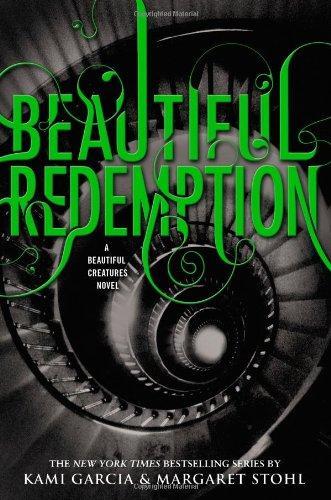
Beautiful Redemption by Kami Garcia, Margaret Stohl
Beautiful Redemption is a 2012 young adult novel by Kami Garcia and Margaret Stohl and the final book in the …
coral reviewed Beautiful Creatures ( by Kami Garcia (Caster Chronicles, #1)
None
3 stars
I picked this up because it was the Kindle Deal of the Day, and the movie is out. And it isn't a bad read--it's interesting to see this done from the non-supernatural AND male point of view. (I guess Twilight starts out as being from the non-supernatural point of view, too. Actually, I would recommend this book to anyone who liked Twilight, though I didn't like that and DID like this. It's got the same overblown-teenage-feelings, things-out-of-our-control, high-school-sucks vibe, but in the South and with better writing. And basically-witches instead of basically-vampires.)
I'd call it "urban fantasy," but it's very rural. Maybe "modern fantasy."
I picked this up because it was the Kindle Deal of the Day, and the movie is out. And it isn't a bad read--it's interesting to see this done from the non-supernatural AND male point of view. (I guess Twilight starts out as being from the non-supernatural point of view, too. Actually, I would recommend this book to anyone who liked Twilight, though I didn't like that and DID like this. It's got the same overblown-teenage-feelings, things-out-of-our-control, high-school-sucks vibe, but in the South and with better writing. And basically-witches instead of basically-vampires.)
I'd call it "urban fantasy," but it's very rural. Maybe "modern fantasy."


